Updated on April 9th, 2023
Wine has been a common ingredient in numerous classic recipes throughout culinary history. And red wine is one of the best types to use. It gives a certain kick to the flavor and feel of many recipes and is renowned for bringing out a classic and refined effect to many dishes. But what happens if, for some reason, you can’t use red wine in cooking? You can easily find some amazing substitutes you can trust to produce the same effect in the flavor and aroma of your cooking. But why cook with red wine? What does it do in a recipe? And what makes it such a highly sought-after addition to some best-tasting recipes we know?
Why Cook With Red Wine?
Cooking with red wine is a tradition as old as the time of the Greeks. And throughout history, it became a regular addition to dishes meant to be served to nobles and royalty. The reason lies in its two most important properties; acidity and flavor.
Made from sweet grapes, red wine is already commonly consumed alongside foods. Not only does it create an incredible burst of flavor in the mouth when taken with food, but it also aids proper digestion. The latter is owed to its acidic nature since the grapes are fermented to make the wine in the first place. And when used in cooking, the acidic content gives the flavor a kick in taste and tenderizes the other ingredients. Plus, it also adds a flush of alluring color to the dish.
On a general note, red wine helps to fortify the taste and aroma of any recipe it’s used for. Its combined acidity and delicious taste help accent the recipe’s features for a more satisfying and palatable feel. And the better the wine, the better this effect. This is why experts would always advise the use of quality red wines in cooking recipes. Such wines should have moderate tannins and be good for drinking, like Pinot Noir, Merlot, the lighter-style Cabernets, and Sangiovese.
Red Wine in Nutrition Facts
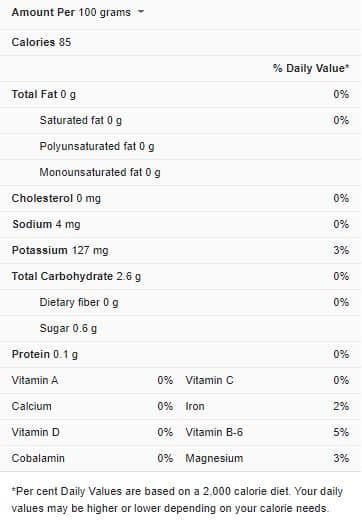
Red Wine in Recipes
Because it’s mostly used to enhance flavor, color, and aroma, red wine is added early in cooking; usually at the very beginning, as a base ingredient. This way, most of the alcohol burns off, leaving only the flavor, color, and aroma. This effect is further noticed when using red wines with fruitier notes or wines with less oak taste and moderate tannins.
This amazing quality of red wine makes it great for savory dishes. The color and flavor also make it perfect for desserts and other sweet recipes as well. And because of its acidic content, red wine is also a favorite cooking ingredient for tenderizing meat. Plus, it’s great to add moisture to dry recipes and for deglazing pots and pans.
Red wine is a popular addition to many classic recipes, and some of these include;
- Braises
- Coq au Vin
- Grilled Game
- Stews
- Marinades
- Sauces
- Sorbet
- Seared meat
- Tarts
- Caramel Apples
- Desserts
- Salad dressings
Red Wine Substitutes for Cooking
Different reasons may push you to consider replacing red wine in a recipe. For most, it may be that we’ve run out of the good stuff and are afraid that what we have at home may not be the best variety to use. Or maybe you prefer to avoid alcohol in your food, but still, wish for that extra kick you know only red wine can give the dish. Whichever reason, you can find some amazing substitutes that will provide great flavor and aroma enhancement to your dish. Some of the easiest to find are listed below;
Red Grape Juice

Both red wine and red Grape juice are made from the same product, and as such, share very similar properties in taste and aroma. The only difference is with red wine, the grapes are allowed to ferment and produce alcohol. Still, red grape juice remains one of the easiest and closest substitutes you can use in place of red wine. Red grape juice can be substituted in the same amounts required for red wine in the recipe. Though slightly sweeter, its taste, color, and aroma are perfect for enhancing numerous sweet and savory recipes, ranging from meat to vegetable soups, stews, marinades, and even desserts. And as an added advantage, it’s alcohol-free!
Red Wine Vinegar
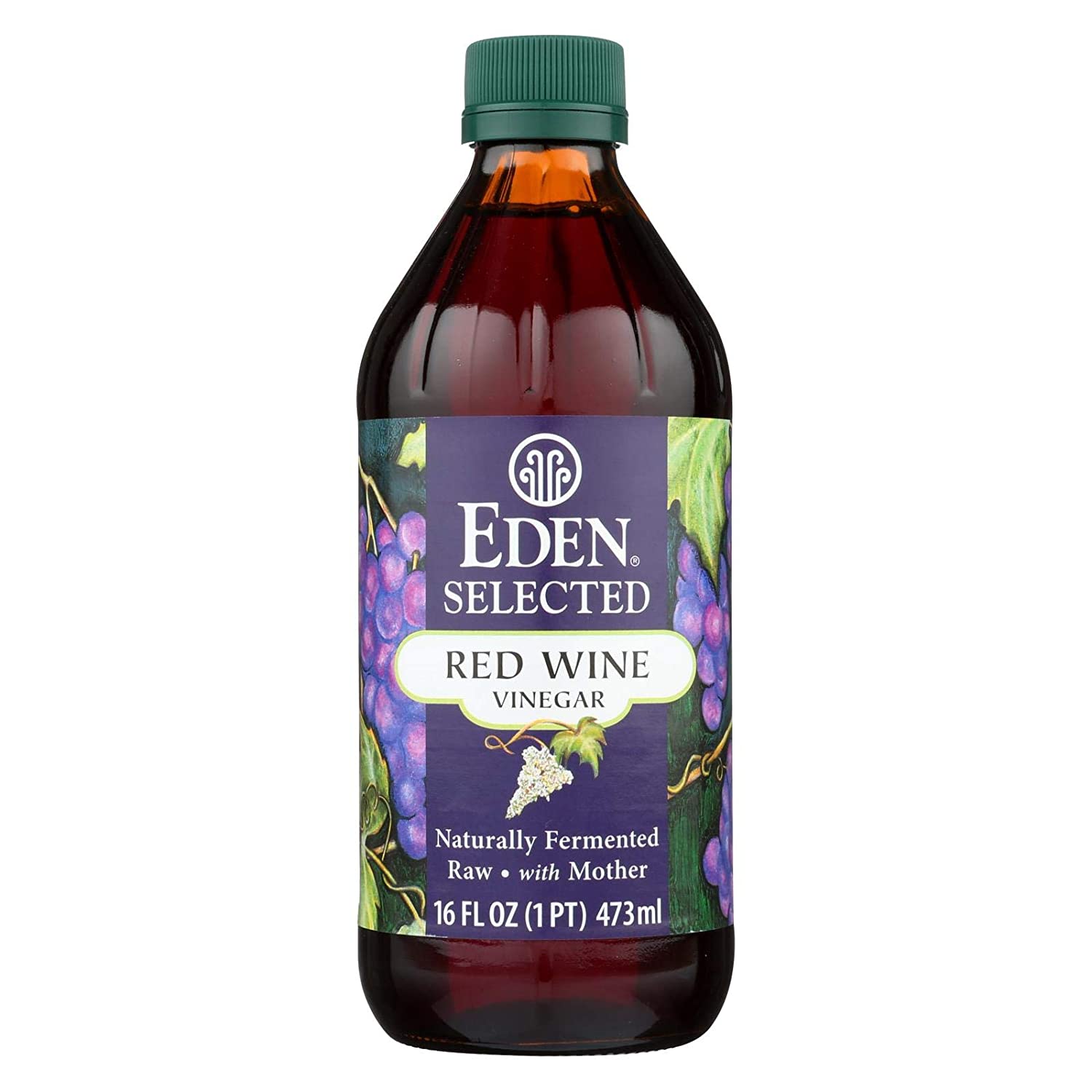
Like red wine, red wine vinegar is also made from fermentation, which gives it a strong acidic nature. It’s also an already popular ingredient in cooking, making it ideal to substitute for red wine. If you’re making a savory dish that’s beef or pork-based, red wine vinegar is your best bet for tenderizing, especially because of its acidic content. And it also works well in vegetable recipes and kicks up the flavor for a more exciting taste. However, red wine vinegar is more acidic than red wine, so you must dilute it with water before using it in its place. To substitute, mix half vinegar for half water to make the full quantity required for red wine.
Tomato Juice
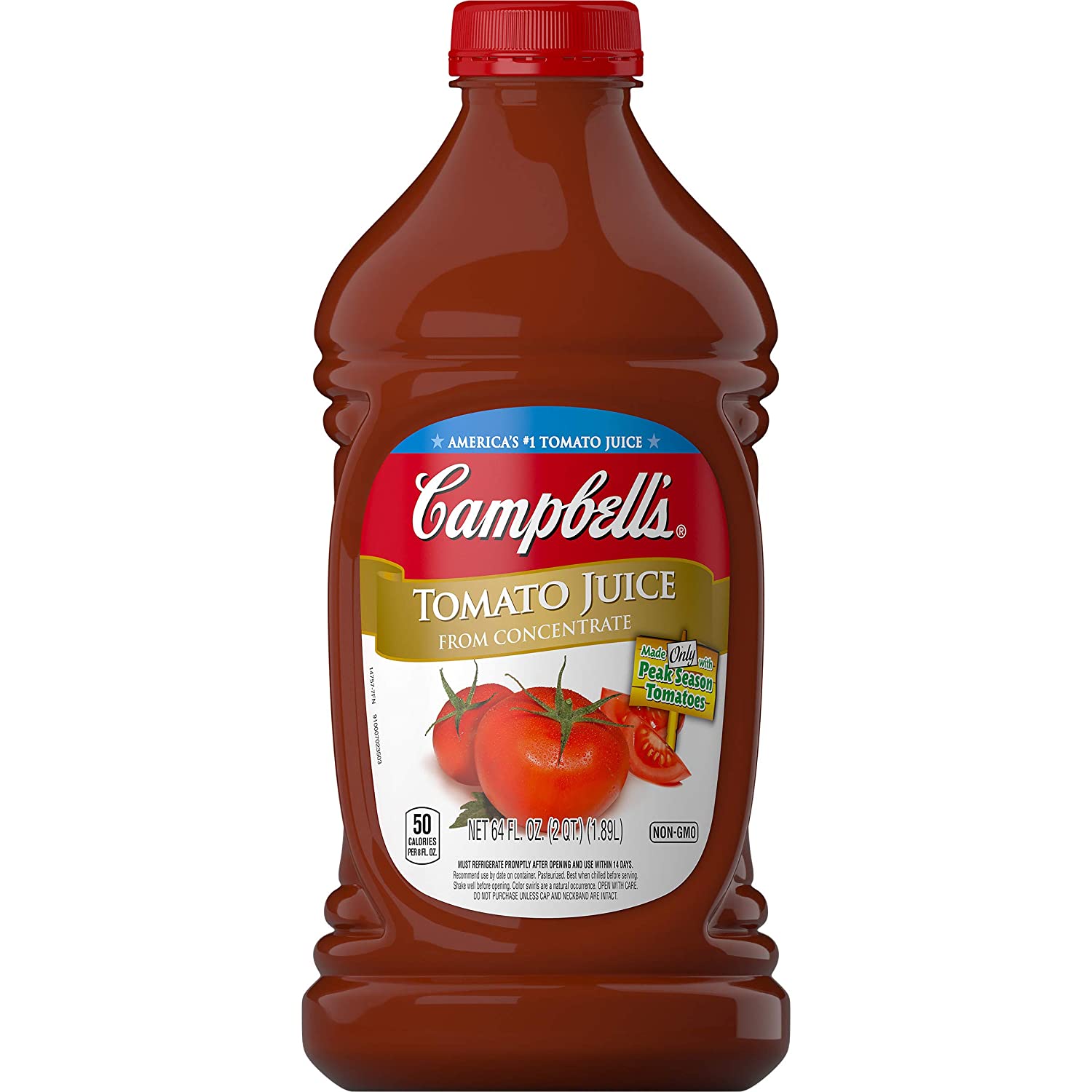
If the recipe aims to use the color and acidity of red wine, you can substitute for tomato juice instead. Tomato juice is almost as acidic as red wine and is a perfect non-alcoholic option to consider. It’s also renowned for enhancing the flavor of numerous recipes since it has a slightly bitter taste. If this is an issue, you can always mix it with your favorite fruit juice to increase the sweetness. Tomato juice is an amazing substitute for red wine in marinades and can be used in the same quantity. But if you’re worried about changing the taste profile, gradually add in small quantities till the desired effect is reached.
Beef Broth
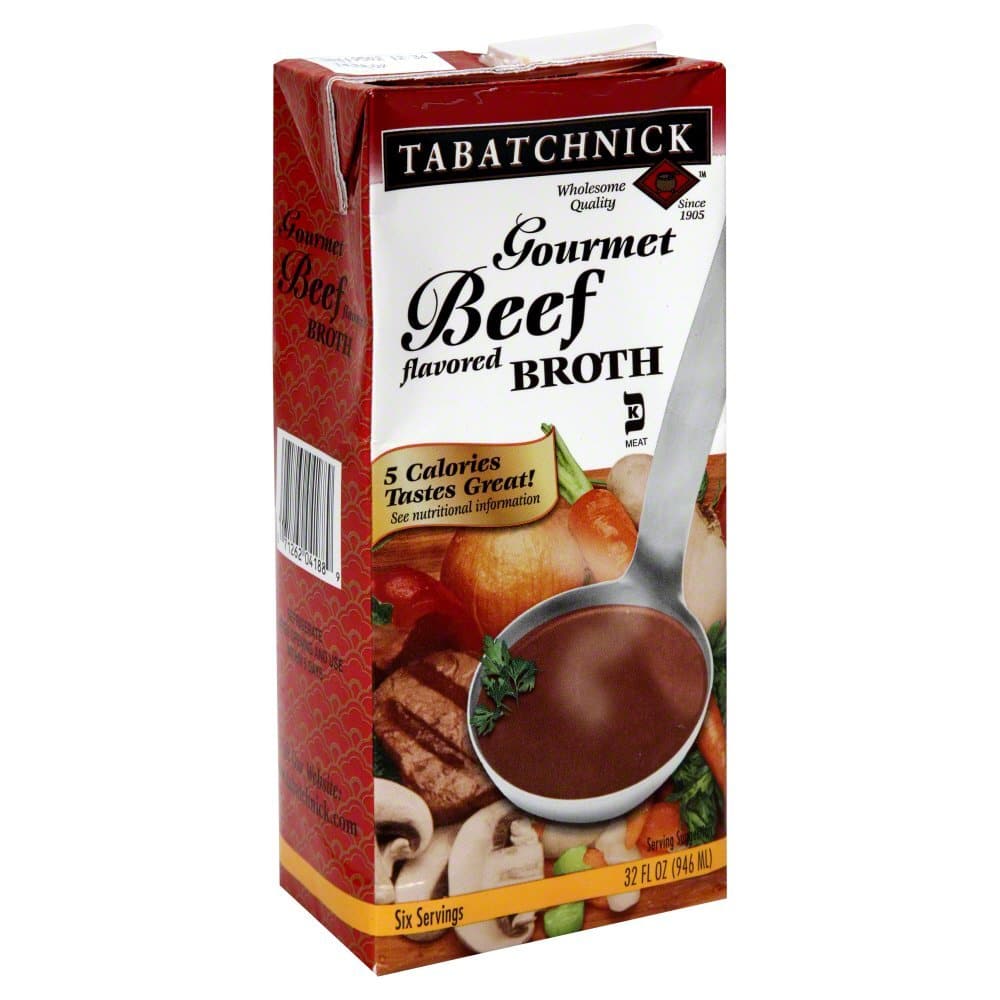
If your recipe requires red wine and you’re all out, you can easily replace it with beef broth. The chances of you having a plate of it chilling in the fridge is high, so it’s a quick-fix option to use in place of red wine. Plus, beef broth is a perfect substitute for those who wish to avoid alcohol in their diets and is rich in flavor and color. Beef broth is great for soups and sauces, as it helps to tenderize and adds flavor. And you can substitute equally for red wine, but note that it’s more savory and less acidic. To solve this, add a teaspoon of vinegar per cup of broth if you desire more acidity.
Liquid from Canned Mushrooms
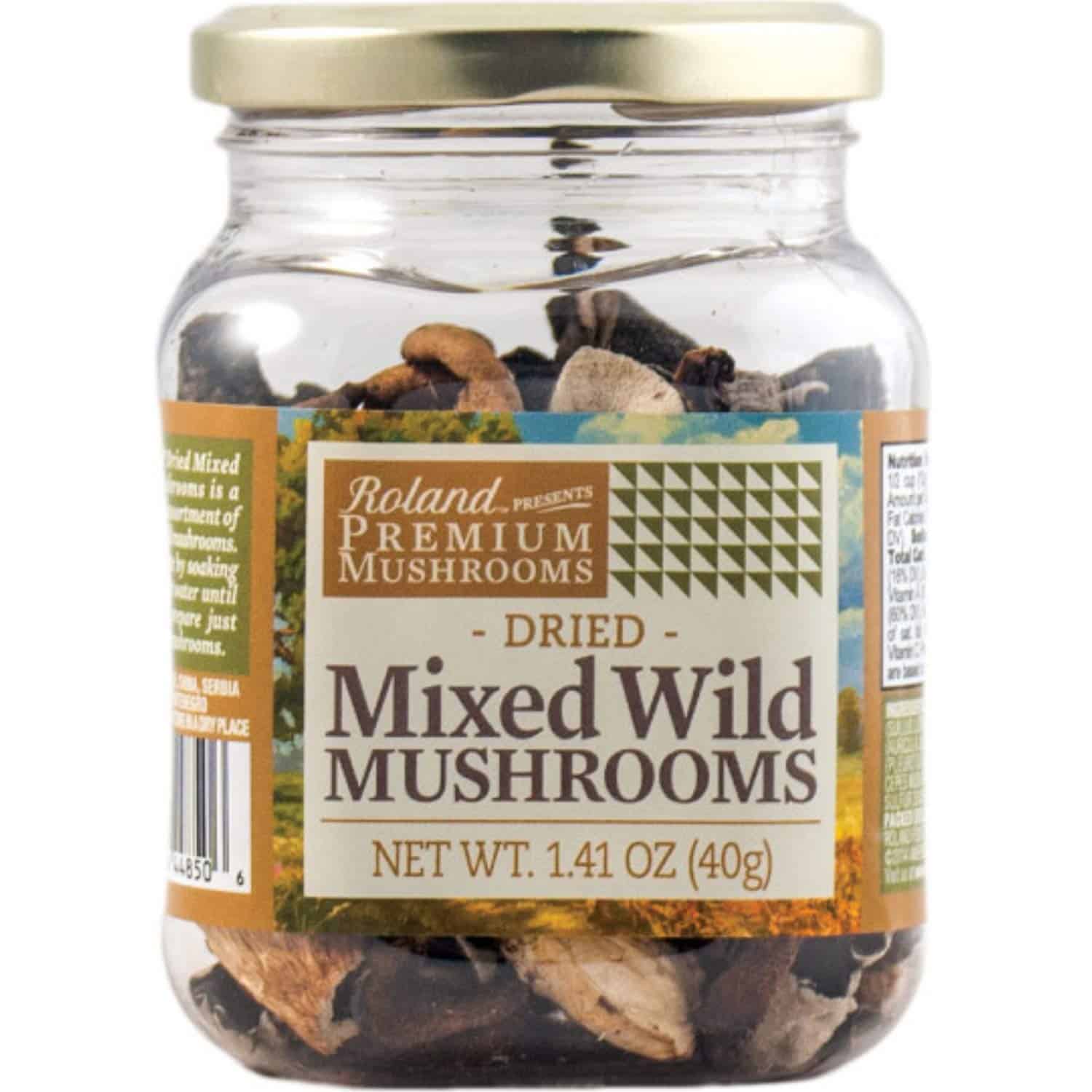
If you happen to have a can of mushrooms on your kitchen shelf, then you should know that the liquid inside makes a great substitute for red wine. When canned, the liquid soaks up some flavors off the mushroom, making it a rich and tasty red wine alternative for your savory recipes. The best types to use are the low Sodium options, as they’re healthier. And you can even substitute the canned mushroom liquid in sweet recipes by mixing half of it with half of any sweet juice like grapefruit, cranberry, or pomegranate juice.
Frequently Asked Questions (FAQs)
Can I use balsamic vinegar instead of red wine?
Yes, you can. Like red wine vinegar, balsamic vinegar is also highly acidic, which makes it great for tenderizing. If you must use it, remember to dilute with water, as it’s also just as strong.
What can I substitute for red wine in spaghetti sauce?
The best substitute for red wine in spaghetti sauce is tomato juice. Not only will it give it a rich red color and aroma, but it also adds a certain tart to the sauce. Tomato juice also contains natural sugars that aren’t very obvious, which lets it balance in the sauce without really changing its taste.
What’s the difference between red wine and red cooking wine?
Red wine is generally the drinking variety, which is sometimes used in cooking as well. Regular red wine is originally made for drinking, so they’re richer and finer in flavor and quality, which is obvious in your recipe. Cooking wine, however, is made for culinary uses, and as such, is not as refined as regular red wine. They work best for cooking, and unlike regular red wine, you can’t enjoy them as a drink.
Conclusion
Ran out of red wine? Looking for a substitute? Well, you can pick from any of the ones listed below for your dishes and recipes. Of course, each option works better for some dishes than others, so it’s best to take your time to master how to use them. But once you do, you may never even have to look for red wine for that braised chicken again!
